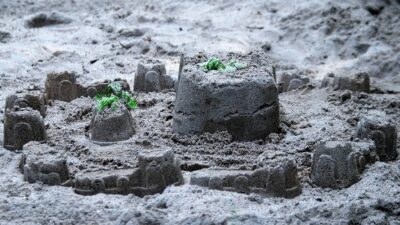In recent years, survival games have surged in popularity, captivating players with their mix of resource management, exploration, and combat. What makes these games stand out is not merely the thrill of survival, but also the vast communities that form around them. Players band together, sharing knowledge, strategies, and experiences that transform the wilderness into a place of camaraderie and collaboration. This article explores how survival games create unique social ecosystems, fostering relationships that thrive in the digital wilderness.
The Essence of Survival Games
Survival games, such as Rust, ARK: Survival Evolved, and Minecraft, place players in challenging environments where they must gather resources, build shelters, and fend off threats. The core mechanics typically involve crafting, scavenging, and sometimes cooperating with or competing against other players. This high-stakes atmosphere demands not just individual skill but also teamwork, communication, and mutual support.
Building Bonds Through Gameplay
-
Cooperation Over Competition: While many survival games allow for player-versus-player interactions, the shared struggle against the game’s environment fosters cooperation. Players often form clans or tribes, pooling resources and skills to withstand challenges. This collaboration helps individuals achieve shared goals, solidifying bonds as they celebrate victories and mourn losses together.
-
Shared Experiences: Players often recount shared experiences, whether it’s successfully building a fortress, navigating a dangerous territory, or overcoming a formidable enemy. These shared stories become the fabric of community identity, enhancing player engagement. Through forums, Twitch streams, and social media, players can reminisce about their triumphs and failures, deepening their connections.
-
Mentorship and Learning: The complexity of survival games often necessitates a learning curve. Veteran players frequently take on mentorship roles, offering guidance to newcomers. This dynamic not only helps new players acclimate but also fosters respect and loyalty, as mentorship creates a sense of belonging within the community. Players grow not just as gamers, but as friends.
- Hostile Environments, Friendly Tribes: Ironically, the harshness of the virtual landscape can create warmer communities. The challenges posed by the game—be it environmental hazards or aggressive wildlife—encourage players to band together for survival. The sense of urgency binds them emotionally, creating friendships that might not form in a more laid-back gaming environment.
The Role of Community Platforms
The rise of community-driven platforms has amplified the social aspect of survival games. Platforms such as Discord, Reddit, and dedicated game forums provide spaces where players can meet, strategize, and share resources. These platforms also serve as avenues for event organization, whether it’s in-game tournaments, survival challenges, or social gatherings in virtual spaces.
Events and Player Engagement
-
In-Game Events: Many survival games host seasonal events, special challenges, or community-based missions. These events not only bring players together for a common objective but also often lead to lasting friendships as participants work together to succeed.
- Community Challenges: Players create and engage in challenges, encouraging creativity and teamwork. These challenges allow players to push their limits, celebrate their accomplishments, and share content, enriching the overall game experience.
The Impact of Survival Games on Real-Life Relationships
The bonds formed in the digital wilderness of survival games can transcend the confines of the screen. Many players develop friendships that lead to real-world meetups, social outings, and even collaborations on creative projects. Gaming conventions and local meetups provide opportunities for players to connect on a more personal level, often reigniting the friendships formed online.
Mental Health and Connection
In an age where mental health concerns are at the forefront of societal conversations, the communities built around survival games may serve as a vital support system. Players often find solace in shared experiences, using their interactions to discuss personal challenges, seek advice, and provide emotional support. The willingness to be vulnerable in a gaming space helps create a sense of belonging, proving that even in a digital wilderness, community can thrive.
Conclusion
Survival games are more than just a test of endurance and strategy; they are vibrant communities where connections are forged in the fires of adversity. Through cooperation, shared experiences, and mutual support, players create lasting bonds that enhance their enjoyment of the game. As these digital ecosystems continue to evolve, the spirit of community will remain a defining element, reminding us that even in the most challenging environments, friendship and solidarity can thrive. In the wilderness, whether virtual or real, we are never truly alone.



